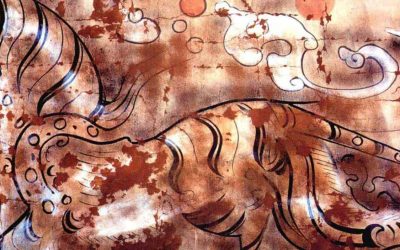Legends of the Mother Goddess
I am pleased to share with all you that the Italian translation of my book Legends of the Mother Goddess (and Other Myths of Goddesses and Women from the Peoples of China) has now been published and is available for purchase. As many of you already know, this book was pioneering in the field of mythology and gender studies in the West, as it was the first to bring together in a single volume more than 40 myths and legends from China’s ethnic minorities in which the protagonists were female deities.
Although a book on this subject cannot become tremendously popular, it has reached a market of specialized readers who have shown great interest in matriarchy in China—a topic to which I dedicated another of my books (Matriarchy in China: Mothers, Queens, Goddesses, and Shamans)—as well as in Chinese mythology. For this reason, whenever I have been in contact with translators of other languages, this has been one of the most sought-after works. In fact, there are already translations into Portuguese and Greek.
I believe this Italian edition stands out thanks to the care and dedication of the translator, Angelica Deluigi. We have also added a few additional myths to the original version to make the book more engaging, and it includes an insightful afterword by Maria Omodeo.
The book can be obtained at this link, and above you will also find the Amazon links to the original Legends of the Mother Goddess and Matriarchy in China. However, these books are not only available on Amazon but also in all bookstores in Spain—just request them and you will have them within a couple of days. I hope this news is of interest to you, and of course, I would be delighted if you shared it with Italian-speaking readers who might be interested.
About me: I have spent 30 years in China, much of the time traveling and studying this country’s culture. My most popular research focuses on Chinese characters (Chinese Characters: An Easy Learning Method Based on Their Etymology and Evolution), Matriarchy in China (there is a book with this title), and minority cultures (The Naxi of Southwest China). In my travels, I have specialized in Yunnan, Tibet, the Silk Road, and other lesser-known places. Feel free to write to me if you’re planning a trip to China. The agency I collaborate with offers excellent service at an unbeatable price. You’ll find my email below.
Last posts
The book Hanzi for HSK 1-3 now available in Greek language
The book “Hanzi for HSK 1-3” now available in Greek language This April, the translation of my book Hanzi for HSK 1-3 has been published in the main digital bookstores in Greece. The Greek version of this book, from the pen of Stefanos Karampalis, has been one of...
Portrait of a Mandarin in 1800
Portrait of a Mandarin in 1800 This was the year in which a very interesting book was published, which through 60 portraits, tried to show some aspects of life in China to the western public. A book now in the public domain, from which we adapted "A Mandarin of...
The art of laying out gardens among the Chinese
The art of laying out gardens among the Chinese In the 1740s, William Chambers travelled on three trading voyages to China with the Swedish East India Company. He was the first European to study Chinese architecture methodically. In a book published in 1757, Designs...
The secret treasure of ancient Chinese art
The secret treasure of ancient Chinese art China has a fabulous artistic treasure hidden from the eyes of the public and specialists. It is her best kept treasure, because given the dispersion of its location, the difficulty of conservation and even evaluation and...
2,000-year-old paintings in a Chinese tomb
2,000-year-old paintings in a Chinese tomb It has been more than 10 years since the publication of The complete collection of murals unearthed in China, a dozen or so books describing with abundant full-color photographs the frescoes discovered in Chinese tombs....
Buddhist Monks in Medieval China
Buddhist Monks in Medieval China That is the subject of John Kieschnick's book. The book analyzes the contents of the three collections of biographies of monks that became famous in medieval China, through them he tries to give us first a characterization of the...










